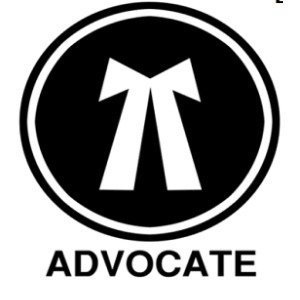Best Native People Lawyers in Ramallah
Share your needs with us, get contacted by law firms.
Free. Takes 2 min.
List of the best lawyers in Ramallah, Palestine
About Native People Law in Ramallah, Palestine:
Ramallah, located in Palestine, is home to a diverse population, including Native People. Native People, also known as Indigenous People, are individuals who are descendants of the original inhabitants of a particular region. In Ramallah, Native People hold a unique position in society, and their rights and legal protections are essential for their cultural preservation and well-being.
Why You May Need a Lawyer:
There are various situations where Native People in Ramallah may require the assistance of a lawyer. Some common scenarios include:
- Land and property disputes
- Violations of cultural and ancestral rights
- Employment discrimination
- Access to healthcare, education, and social services
- Representation in legal proceedings
Local Laws Overview:
The local laws in Ramallah, Palestine, aim to protect the rights and interests of Native People. Key aspects of these laws include:
- Recognition of the unique cultural heritage and ancestral rights of Native People
- Protection of Native People's land rights and access to natural resources
- Prohibition of discrimination based on indigenous status
- Support for preservation and promotion of traditional languages, crafts, and customs
- Establishment of mechanisms for resolving disputes and grievances
Frequently Asked Questions:
Q: What legal rights do Native People have in Ramallah?
A: Native People in Ramallah have legal rights that protect their cultural heritage, land ownership, and access to basic services like healthcare and education. These rights are recognized under local laws.
Q: How can I file a land dispute as a Native Person in Ramallah?
A: If you need to file a land dispute, consult with a lawyer who specializes in Native People law in Ramallah. They can guide you through the process and help protect your rights.
Q: Can a Native Person in Ramallah be discriminated against in employment?
A: No, local laws prohibit discrimination based on indigenous status. If you believe you have experienced employment discrimination, consult with a lawyer who can assess your situation and advise you on the appropriate legal steps.
Q: How can I preserve and promote my traditional practices and customs as a Native Person in Ramallah?
A: The local laws support the preservation and promotion of traditional practices and customs. You can seek legal advice to explore options such as registering your cultural organization or accessing government initiatives that promote indigenous culture.
Q: Are there any legal organizations or support networks for Native People in Ramallah?
A: Yes, there are organizations and governmental bodies in Ramallah that provide legal support and resources specifically tailored to the needs of Native People. Consult with a lawyer or reach out to these organizations for assistance.
Additional Resources:
If you are in need of legal advice or assistance regarding Native People law in Ramallah, Palestine, consider accessing the following resources:
- The Native People Legal Aid Center in Ramallah
- The Ministry of Culture and Heritage in Palestine
- The Palestinian Indigenous Rights Association
Next Steps:
If you require legal assistance in matters related to Native People in Ramallah, Palestine, follow these steps:
- Identify a lawyer or legal organization specializing in Native People law.
- Research and gather relevant documents and evidence related to your case.
- Schedule a consultation with the lawyer to discuss your situation and understand your rights.
- Work closely with your lawyer to develop a legal strategy and navigate the legal processes.
- Keep open lines of communication with the lawyer and provide them with any requested information or updates.
- Fulfill any legal obligations or requirements as advised by your lawyer.
- Keep records of all communications and legal documents related to your case.
Lawzana helps you find the best lawyers and law firms in Ramallah through a curated and pre-screened list of qualified legal professionals. Our platform offers rankings and detailed profiles of attorneys and law firms, allowing you to compare based on practice areas, including Native People, experience, and client feedback.
Each profile includes a description of the firm's areas of practice, client reviews, team members and partners, year of establishment, spoken languages, office locations, contact information, social media presence, and any published articles or resources. Most firms on our platform speak English and are experienced in both local and international legal matters.
Get a quote from top-rated law firms in Ramallah, Palestine — quickly, securely, and without unnecessary hassle.
Disclaimer:
The information provided on this page is for general informational purposes only and does not constitute legal advice. While we strive to ensure the accuracy and relevance of the content, legal information may change over time, and interpretations of the law can vary. You should always consult with a qualified legal professional for advice specific to your situation.
We disclaim all liability for actions taken or not taken based on the content of this page. If you believe any information is incorrect or outdated, please contact us, and we will review and update it where appropriate.









